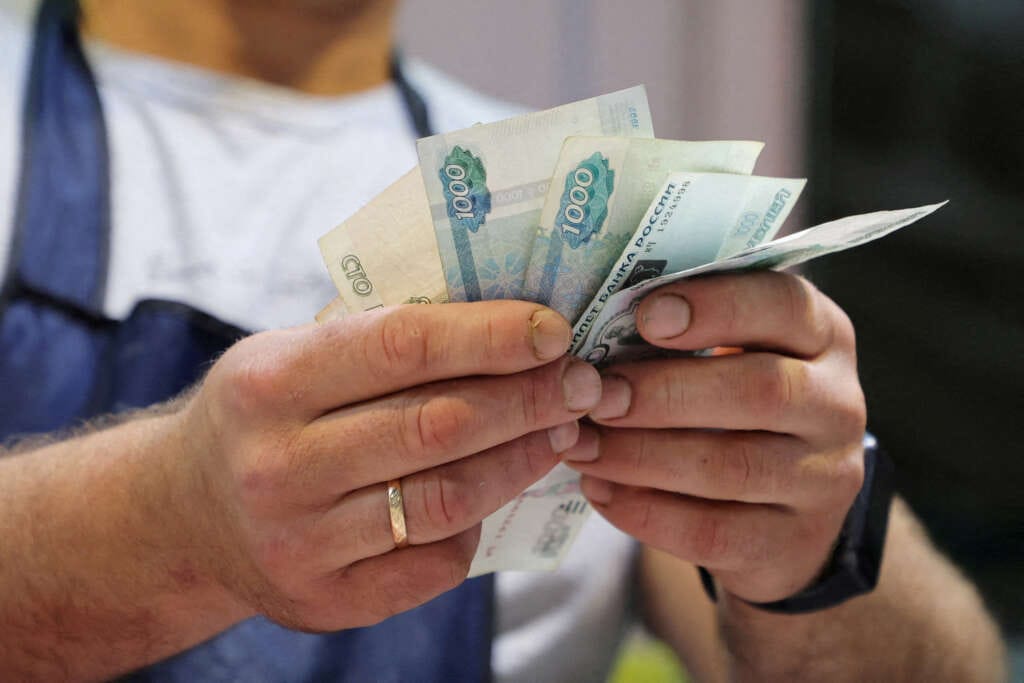
Rouble strengthens towards 96 vs dollar after emergency rate hike
By Alexander Marrow
(Reuters) -The Russian rouble strengthened towards 96 to the dollar on Wednesday, one day after the central bank hiked interest rates to 12% at an emergency meeting and amid speculation over what other steps Russia may take to prop up its struggling currency.
Tuesday’s extraordinary rate meeting and 350-basis-point key rate increase came in response to the rouble plummeting past the symbolic 100 threshold against the dollar at the start of the week and a public call from the Kremlin for tighter monetary policy.
By 1139 GMT, the rouble was 0.9% stronger against the dollar at 96.24. It had gained 0.8% to trade at 105.15 versus the euro and firmed 0.9% against the yuan to 13.14 .
This week has seen some of the rouble’s most volatile trading all year. It reached a near 17-month low of 101.75 against the dollar on Monday and briefly traded at 92.60 on Tuesday morning, before closing at 97.09.
The rate hike, though stopping the rot, will likely not be enough to halt the rouble’s slide, Western and Russian analysts generally agreed on Tuesday.
Five sources told Reuters on Wednesday that Russian authorities were discussing bringing back the compulsory sale of foreign currency revenues for exporters. One high-level source said the change could be made “at any moment”.
Two sources said the mandated conversion of up to 90% of exporters’ foreign currency earnings was under discussion. A similar measure was adopted to stabilise financial markets shortly after Russia’s February 2022 invasion of Ukraine.
Brent crude oil, a global benchmark for Russia’s main export, was up 0.2% at $85.07 a barrel.
Russian stock indexes, in volatile trade for several sessions, were lower.
The dollar-denominated RTS index was down 1.4% to 996.1 points. The rouble-based MOEX Russian index was 2.2% lower at 3,046.9 points.
“The positive reaction to the rate revision by the Bank of Russia was replaced with a correction, linked to regulator’s tighter rhetoric and expectations of capital control measures,” Sinara Investment Bank said in a note.
(Reporting by Alexander Marrow; additional reporting by Lidia Kelly; Editing by Sam Holmes, Christina Fincher and Nick Macfie)


